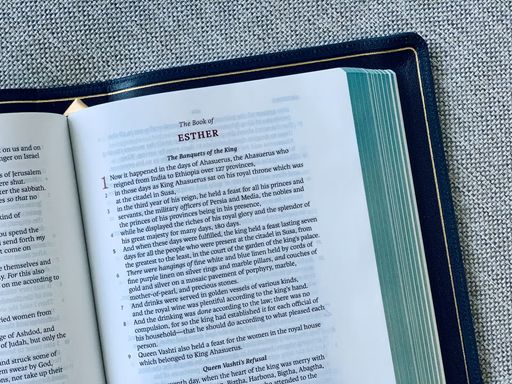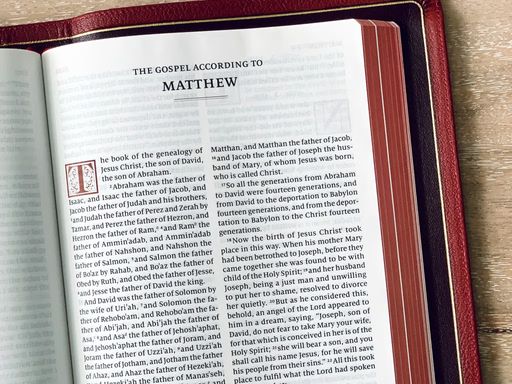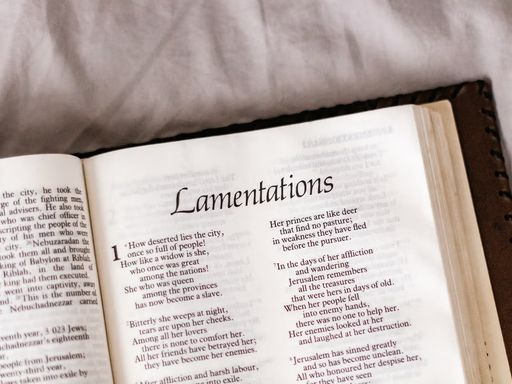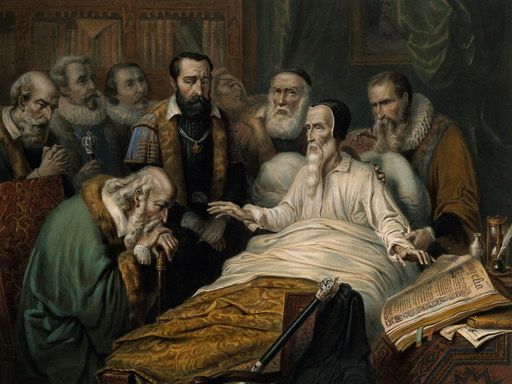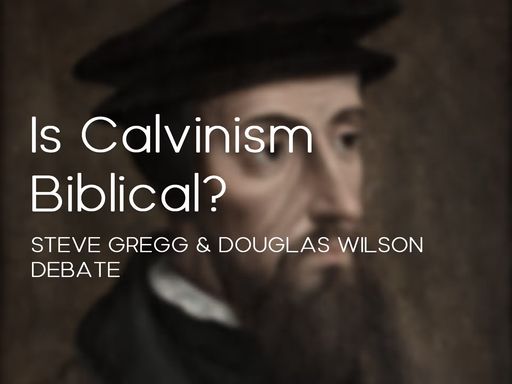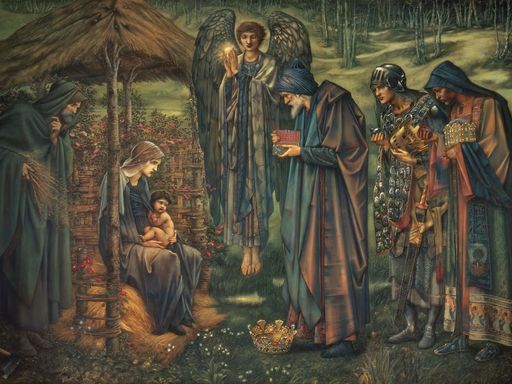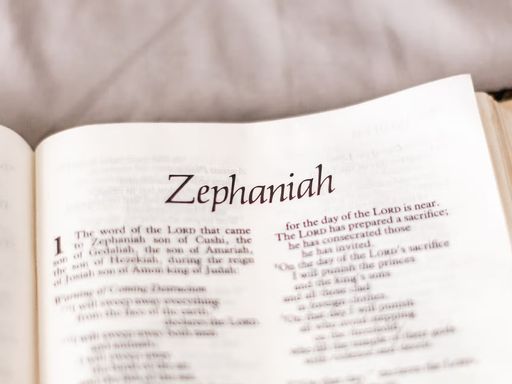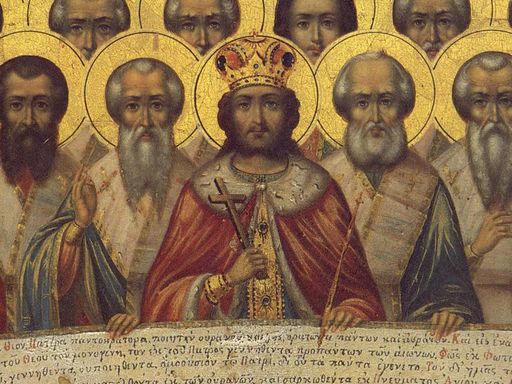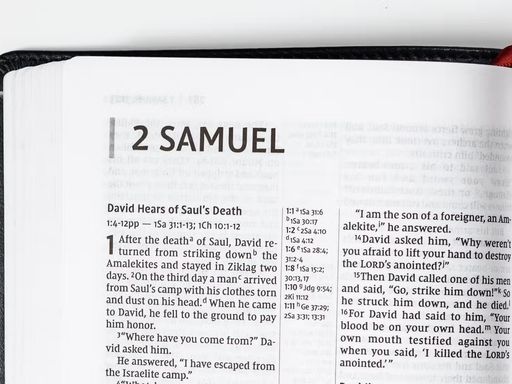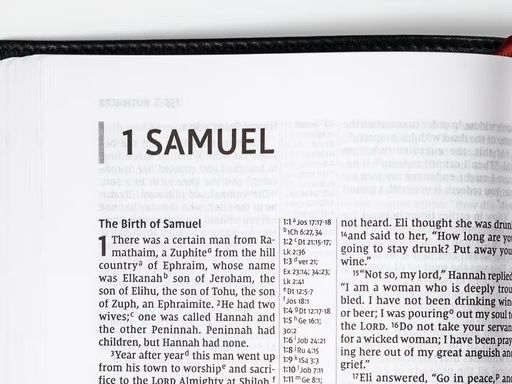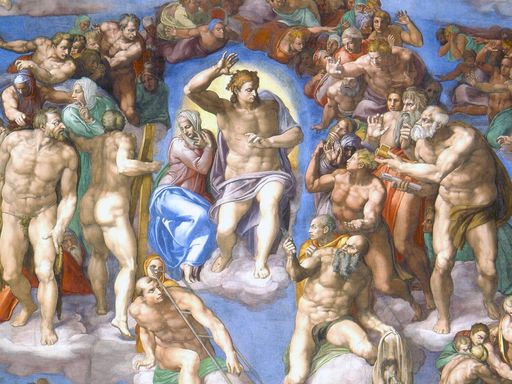
Psalms
Steve Gregg
In this 32-part series, Steve Gregg provides an in-depth verse-by-verse analysis of various Psalms, highlighting their themes, historical context, and relevance to Christian life.

Psalms Introduction
In this presentation, Steve Gregg discusses the structure and authorship of the Book of Psalms. He notes that the word "Psalm" comes from the Greek word that means "praise", and that the book is divided into five sections. Gregg also explores the connection between the Psalms and spiritual warfare,

Psalm 1
Steve Gregg speaks about the book of Psalms and its importance to Christian teachings. The book of Psalms, also known as "praises," is largely comprised of writings and songs accompanied by stringed instruments. Gregg notes that while many of the Psalms were written by David, some were also collecte

Psalms 2, 45, 72, 110
In this study, Steve Gregg discusses four Psalms, which he believes are Messianic and portray the Kingdom of the Messiah. Gregg explains that the Old Testament does not explicitly state the idea of a future kingdom, but it became a traditional Jewish view. He also emphasizes the present ruling of Je

Psalm 19
In this exposition on Psalm 19 verses 7-14, Steve Gregg explores the concept of the Word of God and its significance in interpreting the world around us. Through various biblical references and insights into ancient astronomy, Gregg highlights the crucial role that scripture plays in understanding b

Psalm 119
In this discourse, Steve Gregg discusses Psalm 119, which is the longest chapter in the Bible. Gregg explains that the various nouns used in the chapter refer to the Scriptures, and how it is necessary to devote oneself wholly to the Word of God. He emphasizes the importance of following the whole c

Psalms 22, 23, 24, 15
In this talk, Steve Gregg provides a detailed analysis of Psalms 22, 23, 24, and 15. He examines Psalm 22's graphic description of Christ's crucifixion, highlighting how the Holy Spirit inspired David's words to give glimpses of the coming Messiah. Gregg explains why certain parts of David's Psalms

Psalms 16, 40, 41
In this study, Steve Gregg delves into Messianic Psalms, which speak of the coming Messiah. Despite their initial tone of despair, they culminate in optimism and hope in the promise of God. Focusing on Psalms 16, 40, and 41, Gregg asserts that David's pleas for deliverance are ultimately fulfilled i

Psalms 3, 4, 5, 13, 7, 8, 9
In this commentary, Steve Gregg provides insights into several Psalms including Psalm 3, 4, 5, 13, 7, 8, and 9. He explains the context in which these Psalms were written and highlights key themes such as trust in God, asking for guidance, and seeking vindication. Gregg also notes how certain verses

Psalms 51, 32
In this talk, Steve Gregg discusses the penitential Psalms, which are characterized by remorse and confession of sin. He notes that while David sinned with Bathsheba, his actions did not break his relationship with God, but caused physical symptoms in his body. Gregg emphasizes the importance of tru

Psalms 6, 143, 38, 102, 130
In this discussion, Steve Gregg explores the issues surrounding the penitential Psalms, specifically Psalms 6, 143, 38, 102, and 130. Gregg provides historical context, noting that these Psalms were likely written during a period when David was fleeing King Saul, and therefore they reflect the physi

Psalms 10, 11, 12, 14, 53, 17
In this talk, Steve Gregg delves into various psalms in the Bible, highlighting the themes of poverty, affliction, and righteousness. He emphasizes the importance of recognizing one's humility and dependence on God, especially in times of adversity. Gregg notes that while the wicked may seem to have

Psalms 18, 20, 21
In this talk, Steve Gregg unpacks and analyzes Psalms 18, 20, and 21. He discusses how David behaved righteously toward Saul and how Jesus teaches us to overcome evil by doing good. Gregg also explores the themes of mercy and perseverance in the psalms and the idea of God making Jesus the head of th

Psalms 25 - 31
In this lesson, Steve Gregg delves into Psalms 25-31, exploring themes of trust and faith in God, the importance of seeking fellowship with Him above all else, and the beauty of His holiness. Gregg notes the imagery used throughout the psalms, including references to the Temple and the Ark of the Co

Psalms 33, 36, 37
In this talk, Steve Gregg explores three psalms and their messages. He highlights the importance of rejoicing in God and praising Him with skill and loud noise. Gregg also emphasizes the power of God's word and His ability to deliver those who trust in Him during times of need. He contrasts the ways

Psalms 56, 34, 57, 142, 108, 60
In his presentation, Steve Gregg discusses six psalms, namely Psalms 56, 34, 57, 142, 108, and 60. He explains that the first four psalms were written during a dangerous situation where David was fleeing from Saul and seeking refuge in Philistine city Gath. Nonetheless, the historical context of the

Psalms 83, 137, 79, 129, 149
In this discussion, Steve Gregg examines imprecatory Psalms, which involve wishing evil upon someone, and explains that they are not motivated by personal sense of spite, jealousy, or anger. Rather, these psalms express a desire to see wicked men punished for violating God's laws and to see justice

Psalms 35, 58, 59, 69, 109
In this study of imprecatory Psalms, Steve Gregg discusses how David, despite being a theocratic king and God's chosen one, was not vindictive towards his enemies, and even mourned the death of his son Absalom. Gregg analyzes Psalms 35, 58, 59, 69, and 109, and highlights their figurative language a

Psalms 39, 42 - 44, 46
In this segment, Steve Gregg provides an analysis of several Psalms, including Psalms 39, 42-44, and 46. Throughout his interpretation, Gregg delves into themes such as the transience of wealth, longing for God's presence, and the power of prayer. He highlights how the Psalms address the emotion of

Psalms 47, 48, 49, 50, 52, 54, 55
In this section of his presentation, Steve Gregg delves into Psalms 47, 48, 49, 50, 52, 54, and 55, offering insights into their meaning and significance. He highlights the theme of God's sovereignty and the importance of singing praises to Him. Gregg also discusses the concept of the city of God, w

Psalm 61 - 68
In this series of Psalms, Steve Gregg explores themes of trust in God, prayer, and blessings. He emphasizes the importance of being silent before God, and of making vows and fulfilling them. Gregg also discusses the concept of chosen ones, or the elect, who are satisfied by fellowship with God. He c

Psalms 70, 71, 73 - 76
In this discussion, Steve Gregg reflects on Psalms 70 to 76 written by King David. Gregg examines David's thoughts as he reflects on his life as an aging man, who has faced treacherous enemies and seeks divine help. He highlights the importance of focusing on God's sanctuary, rather than envying the

Psalms 77 - 82
In this talk, Steve Gregg discusses several Psalms, exploring their themes and historical context. He highlights the importance of remembering God's works and staying steadfast in faith. Gregg also references the division of the tribes of Israel, their conquest of the promised land, and the importan

Psalms 84 - 89
In this discussion, Steve Gregg explores Psalms 84-89, focusing on the themes of blessings and strength in God. He notes the significance of Jerusalem as the city of God and the place where His glory rests. Gregg also discusses the covenant made with David and its relevance to Christians today. Ulti

Psalms 98 - 101, 103, 104
In this presentation, Steve Gregg delves into the meaning behind several Psalms, including Psalms 98-101, 103, and 104. He notes that Psalm 98 emphasizes the holiness of God and the importance of respecting and fearing Him. Psalms 103 and 104 are companion psalms that focus on the benefits provided

Psalms 105, 106
In this talk, Steve Gregg discusses the meaning behind Psalms 105 and 106. He points out that Psalm 107:2 urges us to speak up about the deliverance God has given us in times of trial. The psalms touch on the Israelites' disobedience to God and how they complained to Moses, as well as the sacrifices

Psalms 107, 108, 111 - 113
In this talk, Steve Gregg discusses Psalms 107, 108, 111, and 112. He notes that these Psalms contain similarities in their themes and references to biblical stories. Gregg highlights the importance of asking God to move through his works among us, and the promise of eternal life through righteousne

Psalms 114 - 117
In this segment, Steve Gregg discusses four Psalms: 114-117. He explains the significance of the songs and how they relate to Jesus and his teachings. In Psalm 115, Gregg emphasizes the importance of prayer and how it is the key to asking God for help to rectify our personal and societal problems. A

Psalms 120 - 122
In this talk, Steve Gregg discusses the possible meanings and origins of the Songs of Degrees, a collection of 15 psalms in the Book of Psalms. He explores various theories, such as the idea that the psalms were written by pilgrims or collected by King Hezekiah. Gregg offers his own interpretation t

Psalms 123 - 127
In his discourse on Psalms 123-127, Steve Gregg emphasizes the need for Christians to rely on God's delivering power in times of trouble. He also stresses the importance of walking with God and avoiding iniquity, as this ensures eternal security. Gregg exhorts parents to train their children early i

Psalms 128 - 134
In this discussion, Steve Gregg provides an analysis of Psalms 128-134. He discusses the themes of prosperity, humility, and unity in these Psalms. Furthermore, he emphasizes the importance of sowing seeds and maintaining fellowship with God. Ultimately, he suggests that permanent fellowship and unb

Psalms 135 - 140
In this talk, Steve Gregg discusses Psalms 135-140. He reads through Psalm 135 and emphasizes the Hebrew expression "For mercy endureth forever," which is repeated throughout the psalm. He also notes that these psalms are often sung in times of exile or persecution. Additionally, he touches on the i

Psalms 141, 144 - 150
Steve Gregg provides an overview of Psalms 141, 144-150, explaining how they cover different topics and occasions. He notes that Psalm 141 refers to the prayers of the saints and acknowledges that the New Testament also refers to similar practices among early apostles. Psalm 144 celebrates God's vic






